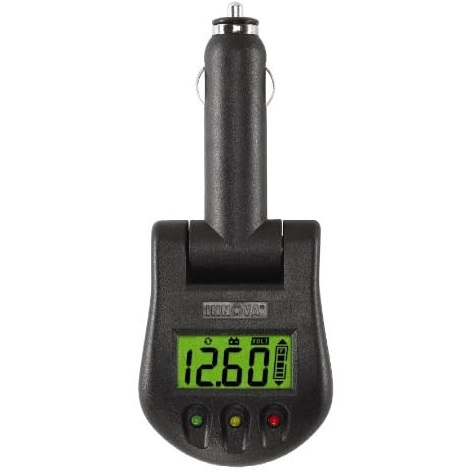
- PROGRESSIVE INDUSTRIES
- Item Weight 5 pounds
- PD18 x 6.25 x 5 inches
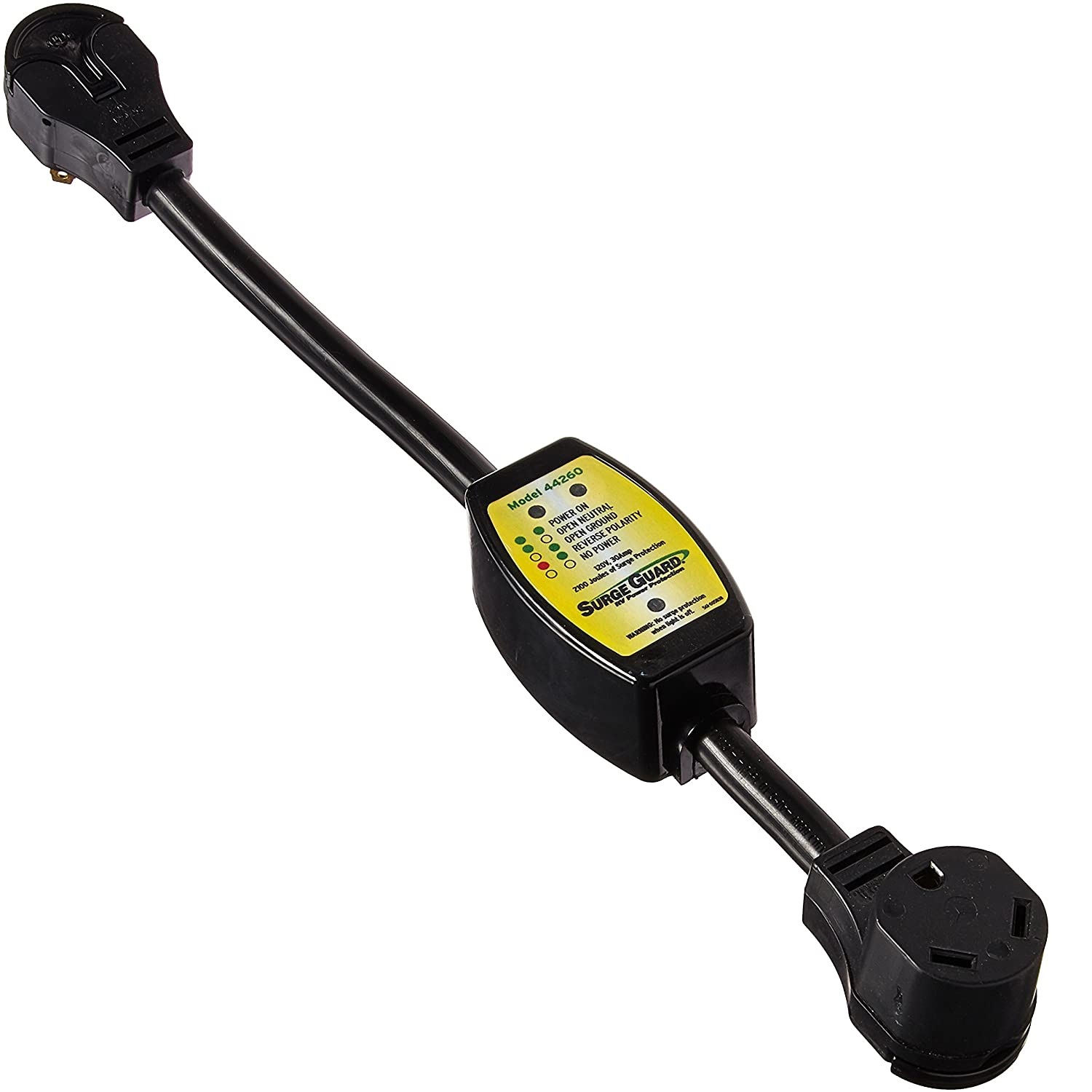
- Brand Trc
- Item Weight 0.48 ounces
- PD 22.3 x 3.9 x 3.7 inches
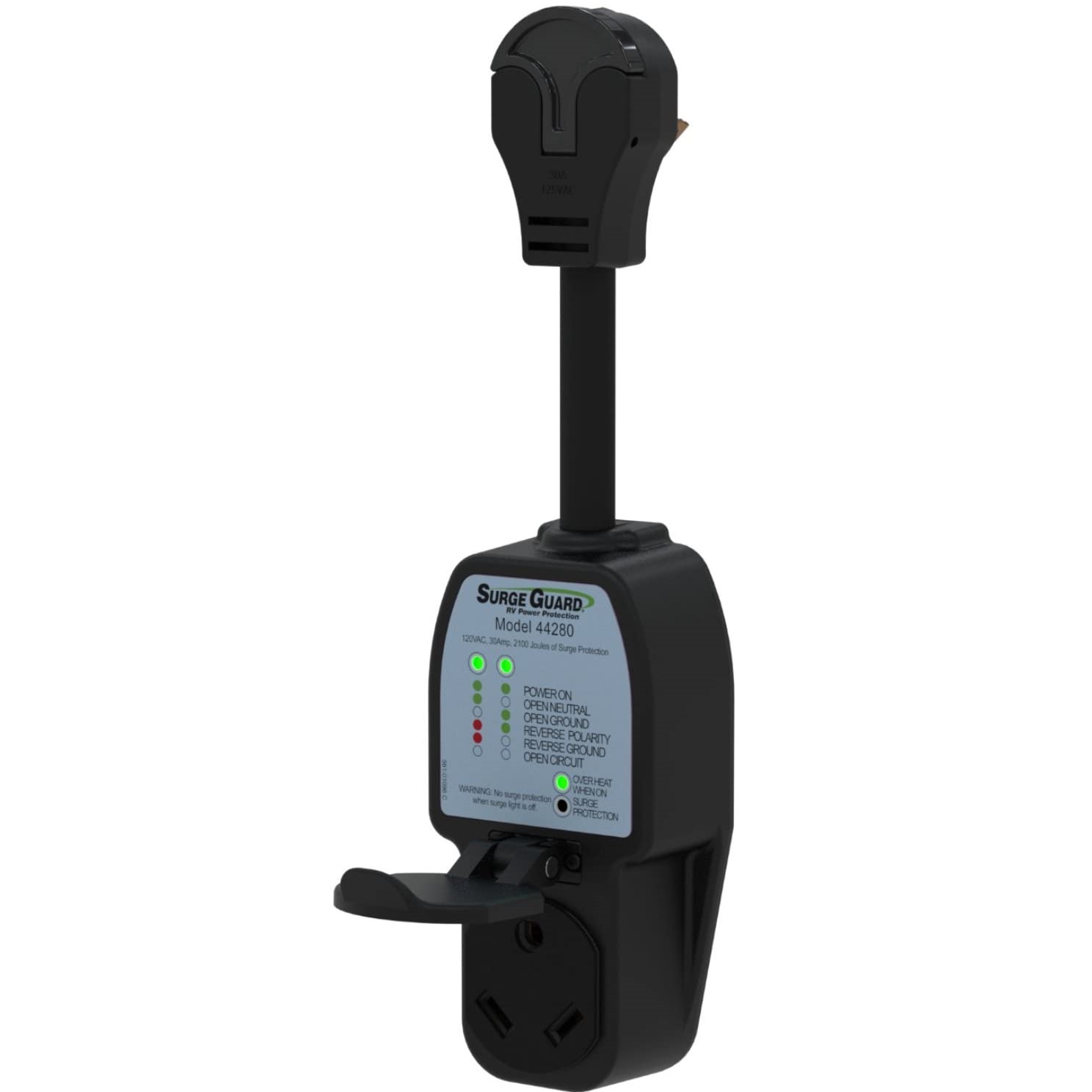
- Brand Surge Guard
- Item Weight 1.5 pounds
- PD 15.5 x 4.25 x 4.25 inches
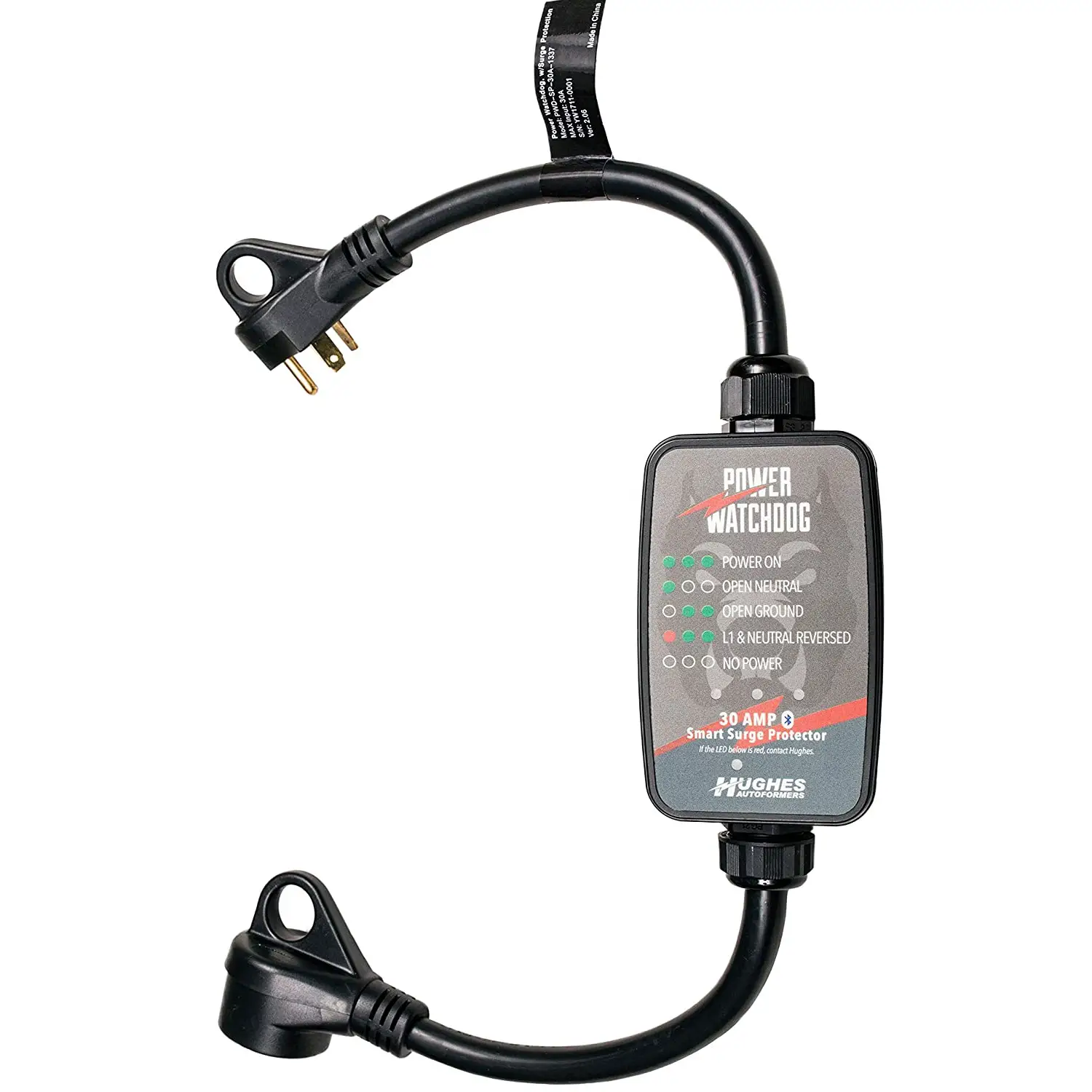
- Brand Hughes Autoformer
- Color Black
- Item Weight 3 Pounds
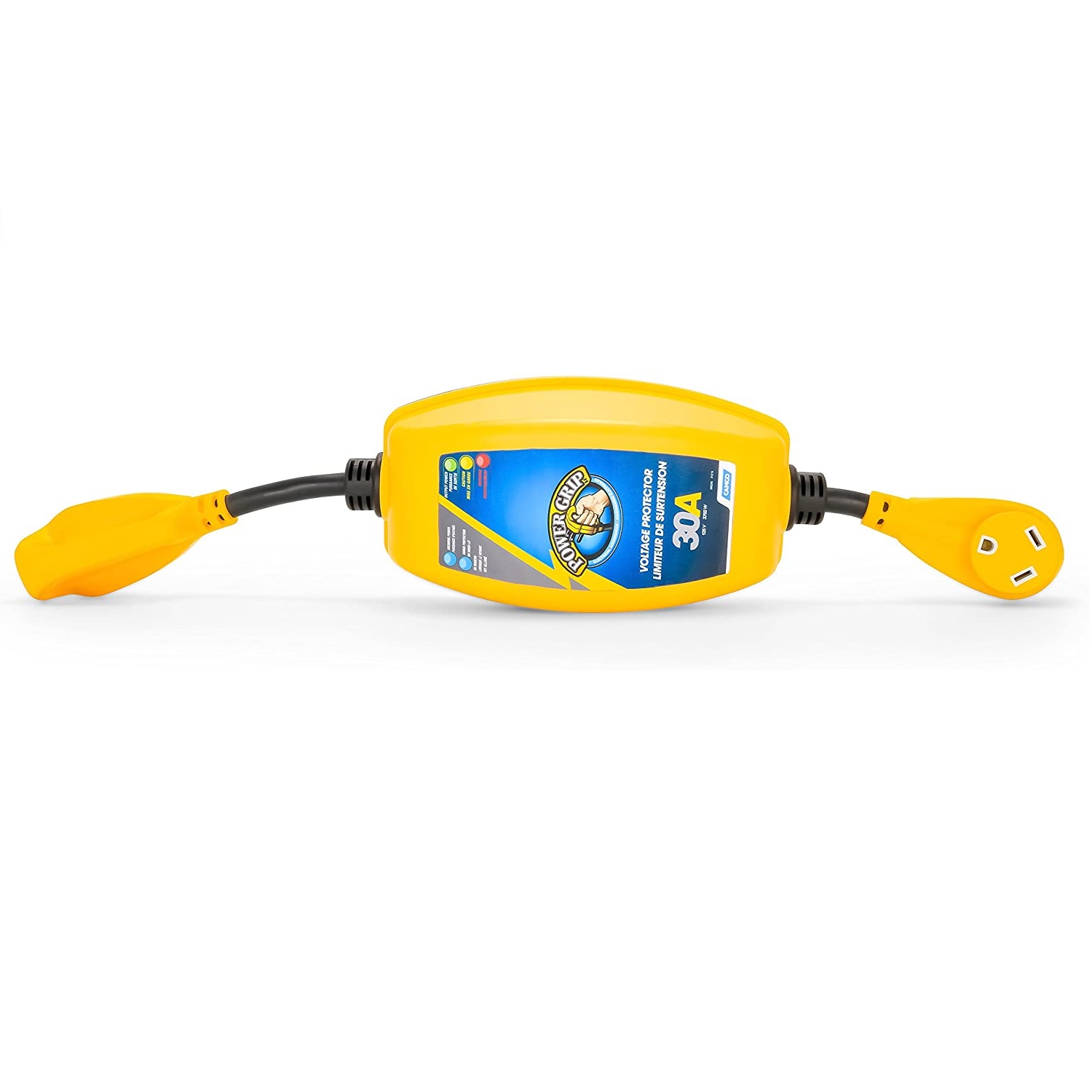
- Brand Camco
- Item Weight 4.91 pounds
- PD 27.5 x 5.4 x 5.9 inches
Choose the Best RV Surge Protector
Customer’s Choice: the Best Rated RV Surge Protectors
3 users answered this survey. Please help us improve this review!
If you’re like the majority of RVers, you take pleasure in maintaining your vehicle in excellent working order. You know that a little preventive maintenance can go a long way toward avoiding big problems down the road. That’s why it’s important to include surge protection as part of your preventative maintenance plan. A good RV surge protector can help protect your valuable investments from the damage caused by power surges and spikes. In this article, we’ll discuss what to look for when buying an RV surge protector, and we’ll recommend some of the best models on the market today.
Table of Contents
EMS-PT50X Portable RV Surge Protector by Progressive Industries
 Do you require an RV surge protection system that is the best available? Progressive Industries has you covered with their effective model. This unit is designed for outdoor use, with an operating temperature range of -40 to 105 degrees Celsius.
Do you require an RV surge protection system that is the best available? Progressive Industries has you covered with their effective model. This unit is designed for outdoor use, with an operating temperature range of -40 to 105 degrees Celsius.
It’s also weather-resistant, so you don’t have to worry about it rusting or being damaged by the elements. The locking clamp and solid handle add an extra level of protection and peace of mind, while the all-weather panel assembly keeps the unit safe from the elements. Best of all, it comes with a lifetime warranty, so you can be confident in its quality and performance. But despite its impressive specs, the Progressive Industries product falls short in one important area: customer support. Unfortunately, as the customers noted, the company offers no phone support and has been unresponsive to warranty repair requests.
Trc Portable Entry-Level Surge Protector- 30 Amp
 If you’re in the market for a cost-effective and dependable surge protector, the TRC Surge Protector is an excellent choice. This product offers 2100 Joules of protection, making it ideal for protecting your electronic devices from damage.
If you’re in the market for a cost-effective and dependable surge protector, the TRC Surge Protector is an excellent choice. This product offers 2100 Joules of protection, making it ideal for protecting your electronic devices from damage.
It also analyzes circuits to check pedal power, so you can be sure your devices are always getting the power they need. And the indicators illuminate to let you know when there’s open ground. Some reviewers have said that it didn’t protect their RV from a power surge, but we think that’s because they didn’t have the right size for their RV. This surge protector is perfect for RVs up to 30 amps, and we think it’s a great value for the price. So if you’re looking for a surge protector that offers both quality protection and peace of mind, the TRC Surge Protector is a great choice.
3A Technology Portable Surge Guard – 120V, 30A
 Portable Surge Guard from 3A Technology is the perfect way to protect your RV or trailer from power surges and spikes.This handy gadget detects and displays a neutral position if the park’s electricity is out, and warns you of any other potential problems with your electrical system.
Portable Surge Guard from 3A Technology is the perfect way to protect your RV or trailer from power surges and spikes.This handy gadget detects and displays a neutral position if the park’s electricity is out, and warns you of any other potential problems with your electrical system.
Plus, it has a brass thickness gauge so you can be sure your receptacles are up to code. The easy-T-pull plug handles make it easy to use, even when you’re on the go. However, some reviewers said that this product is cheaply made and poorly constructed, and as a result, it is prone to melting and arrives defective. Additionally, the electrical connections are very poorly soldered, leaving you vulnerable to power surges.
30 AMP BX4370 Hughes RV Surge Protector Power Watch Dog
 Do you need a safe way to protect your RV from power surges? The Hughes device is the answer to all of your power-related needs. This top-of-the-line unit is designed to provide total protection for your recreational vehicle, and it’s easy to use – just plug it in and you’re good to go!
Do you need a safe way to protect your RV from power surges? The Hughes device is the answer to all of your power-related needs. This top-of-the-line unit is designed to provide total protection for your recreational vehicle, and it’s easy to use – just plug it in and you’re good to go!
Plus, the handy tracking feature allows you to monitor your power usage at any RV park, so you can make sure you’re not going over your limit. And with its lightweight and easy-grip handles, transport is a breeze! So don’t wait – order this product today.
Camco RV Integrated Power Surge Protector 30-Amp
 No one wants to worry about their RV’s electrical system while on vacation – now you don’t have to with the Camco RV Surge Protector. This nifty little device automatically protects your rig from dangerous voltage levels, whether high or low and also safeguards it from wiring issues.
No one wants to worry about their RV’s electrical system while on vacation – now you don’t have to with the Camco RV Surge Protector. This nifty little device automatically protects your rig from dangerous voltage levels, whether high or low and also safeguards it from wiring issues.
Plus, it features integrated surge protection of up to 2,800 joules – plenty to keep your electrical equipment safe. Best of all, it’s weather-resistant so you can rest easy knowing your investment is well protected. But beware – Camco customer service is notoriously poor, so you may be left on your own if something goes wrong.
RV surge protectors are an important part of protecting your investment. They provide a layer of protection against power surges and spikes. While most RVs come with some form of built-in surge protection, it is always a good idea to have an additional layer of protection.
Our top selections for the finest RV surge protector in 2022 were as follows. Read our buying guide below for more information on how to choose the right one for your needs.
RV Surge Protectors Buying Guide
What is an RV Surge Protector?
An RV surge protector is a circuit that helps to protect your RV from harm caused by power surges. A power surge can occur when there is a sudden spike in the electricity supply, such as during a thunderstorm. Solar panel wiring can heat up and cause your RV’s electrical systems and appliances to overheat. In addition, you might be interested in portable solar panels for RV review.
A surge protector acts as a barrier between your RV and the power supply. It absorbs the excess energy from the surge and protects your RV from damage. Surge protectors are rated in terms of their maximum voltage capacity and maximum current capacity.
It is important to choose a surge protector that is rated higher than the voltage of your RV’s electrical system. This will ensure that the surge protector can handle any spikes in the electricity supply without being damaged itself. [1]
Do You Really Need to Protect Your RV?
Certainly, a surge protector is crucial for your RV. Power surges can damage your RV’s electrical systems and appliances. They can also cause fires.
A surge protector is a relatively inexpensive way to protect your RV from costly repairs or replacements. It is also a good idea to have a surge protector in case of an emergency, such as a power outage.[2]
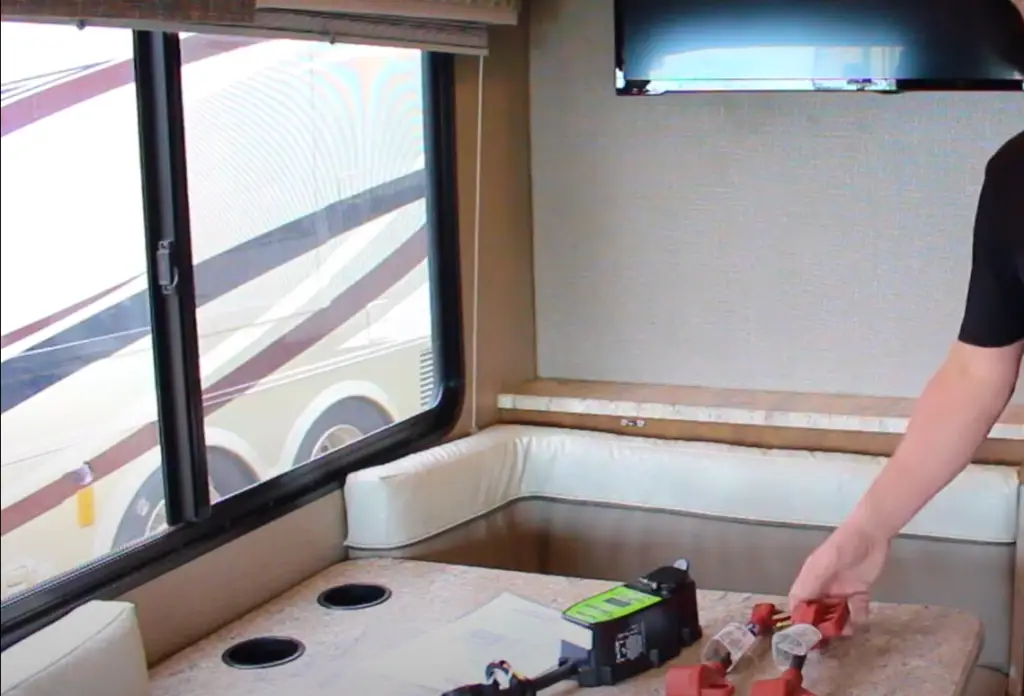
If you’re not sure whether or if you require a surge protector, consult an electrician or the personnel at your local RV store.
How Does an RV Surge Protector Work?
An RV surge protector is a device that helps to regulate the flow of electricity coming into your RV. It does this by absorbing or redirecting any excess voltage that could damage your RV’s electrical system.
RV surge protectors are placed between your RV and the power source, whether that be a campground hookup or a portable generator. They provide an extra layer of protection for your RV and can help to prevent costly repairs down the road.
Power Surge – What is It?
A power surge is a sudden spike in voltage that can damage your RV’s electrical system. Surges can be caused by lightning strikes, downed power lines, or even a faulty campground hookup.
While your RV’s built-in circuit breakers will help to protect against small surges, a large surge can still do serious damage. This is where an RV surge protector comes in. By absorbing the excess voltage, it can help to prevent costly repairs. [3]
Comparison of RV Surge Protector and EMS Product
There are two primary types of RV surge protectors available:
- RV Surge Protectors
- EMS (Energy Management Systems)
It does this by absorbing or redirecting any excess voltage that could damage your RV’s electrical system.
An EMS is a more comprehensive solution that not only protects against voltage spikes but also helps to regulate the overall flow of electricity in your RV. This can help to prevent overloading your RV’s electrical system and save you money on your electric bill.
So, which one is right for you? If you’re just looking for basic protection against power surges, an RV surge protector will suffice. However, if you’re looking for a more comprehensive solution, an EMS may be a better choice. [4]
Surge Protectors For RVs – Things To Consider
Display or No Display
The first thing you need to decide when looking for an RV surge protector is whether or not you want a model that has some kind of display.
Some people feel more comfortable knowing exactly what’s going on with their power, while others prefer a more hands-off approach. If you fall into the latter category, then you’ll be happy to know that there are plenty of great options out there without any sort of display.
One thing to keep in mind, however, is that models without displays can be more difficult to troubleshoot if something does go wrong. So if you’re the type of person who likes to have all the information at your fingertips, then opting for a model with a display is probably the way to go.
What Is the Difference Between a Portable and a Hardwired Surge Protector?
Portable surge protectors are those that come with their own power cord and can be plugged directly into an outlet. Hardwired surge protectors, on the other hand, need to be wired directly into your RV’s electrical system.
Generally speaking, hardwired surge protectors are going to offer better protection than portable ones. That’s because they’re less likely to get unplugged accidentally and they’re not as susceptible to damage from the elements.
However, hardwired surge protectors can be more difficult to install, so if you’re not comfortable working with electricity, then a portable model might be a better option for you.
Whichever type you choose, just make sure that it includes all of the features that you’re looking for. [5]
Amp Rating
While the amp rating is important, it’s not always easy to find out how many amps your particular model needs. If you have an RV that uses 30-50A of power (depending on its size), then make sure the protector can handle this demand by looking for one with either 50 or higher ratings – and pay a little extra in price!
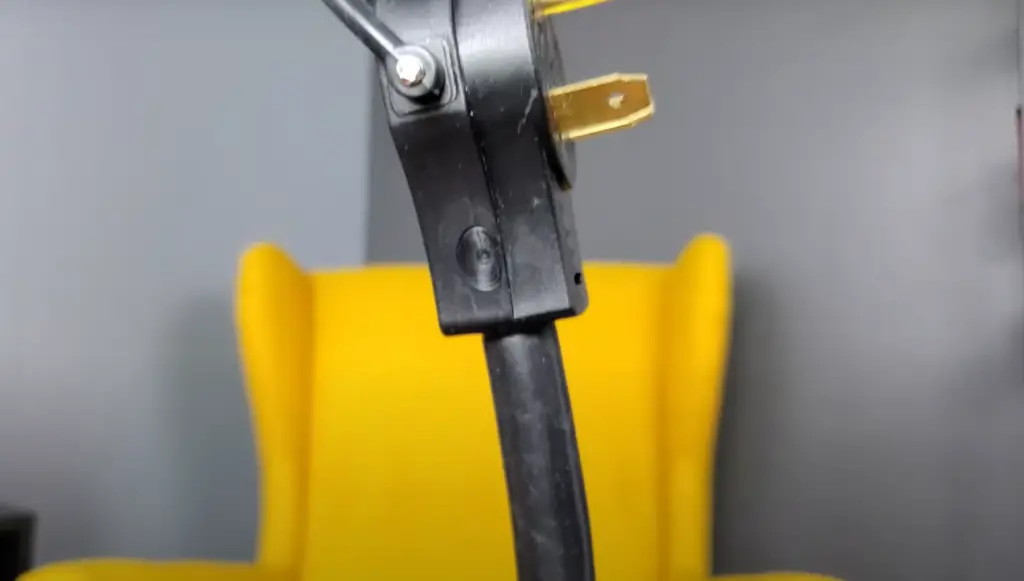
If you have a big RV or want to run several devices at once, you may wish to go for a model with a higher amp rating. Keep in mind that these versions may be more costly. [6]
Joules Rating
The joules rating is a measure of how much energy a surge protector can absorb before it needs to be replaced. The higher the joules rating, the better.
You’ll want to look for a model with a minimum rating of around 1000, but ideally, you should try to find one with a rating of 1500 or more.
Anything less than that and you run the risk of damaging your RV’s electrical system if there’s ever a power surge. [7]
Voltage Rating
The voltage rating is another important factor to consider. You’ll want to make sure that your surge protector can handle the amount of power that your RV will be pulling.
If you have an RV with more than one appliance, consider getting a model that’s rated for higher amp loads. Just keep in mind these powerhouses can be pricey so take your budget into account when choosing!
In general, you’ll want to look for a model with a voltage rating of 120 volts. However, if you have a larger RV or if you plan on running multiple appliances at the same time, then you might need a model with a higher voltage rating.
Just be sure to check the specifications of your RV and all of your appliances before making a purchase. [8]
Required Installation Specifications
Some surge protectors require special installation specifications, so you’ll need to make sure that your RV can accommodate them.
For example, some models need to be installed a certain distance away from the electrical panel. Others might require that you have a certain type of wiring in your RV.
Before you purchase a model, just double-check the installation requirements to make sure that everything will fit properly.
Installing a surge protector is one of the best ways to protect your RV’s electrical system. By following these tips, you can be sure to find the perfect model for your needs. And with so many great options on the market, there’s no reason not to get one!
Weight
One more factor to consider is the weight of the surge protector. If you plan on moving it around often, then you’ll want to choose a model that’s lightweight and easy to transport.
On the other hand, if you’re not planning on moving it very much, then weight might not be as big of a concern for you.
Keep these factors in mind when shopping for an RV surge protector and you’ll be sure to find the perfect one for your needs!
Response Time
When there’s a power surge, you want your surge protector to spring into action as quickly as possible. That’s why response time is an important factor to consider.
The best models on the market have a response time of less than one nanosecond. That means that they can react almost instantly to a power surge and protect your RV from damage.
Anything slower than that and you run the risk of your RV’s electrical system being damaged before the surge protector can kick in. [9]
Indicator Light
Some surge protectors come with an indicator light that lets you know when they’re working properly.
This can be a useful feature, especially if you’re not sure whether or not your surge protector is still functioning properly.
Just remember that not all models come with this feature, so it’s something to keep in mind if it’s something that you’re interested in.
Anti-Theft Protection
Anti-theft protection is built into many surge protectors, which can be a great way to deter thieves.
This feature is usually found on portable models, but it’s something to keep in mind if you’re worried about your surge protector being stolen.
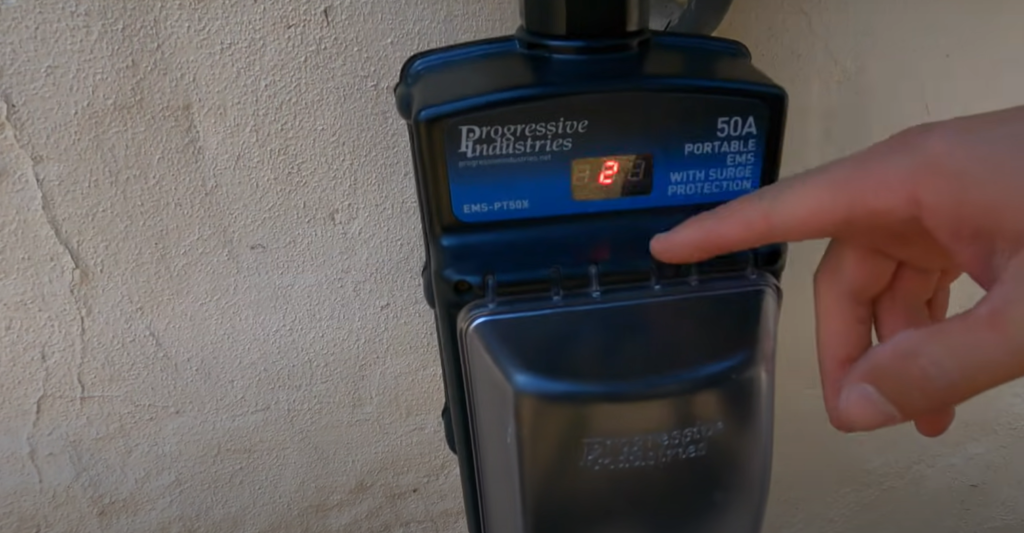
Just remember that this feature might add to the cost of the surge protector, so it’s something to consider if you’re on a budget.
Weather Resistance
If you live in an area that is prone to severe weather, you’ll want to make sure your surge protector can withstand the elements.
Look for a model that is weather resistant or even waterproof. This way, you can rest assured knowing your electronics are safe no matter what Mother Nature throws your way.
Potential Shore Power Issues
The first thing you need to consider is what kind of power you will be using at your campsite. If you are going to be plugged into shore power, then you need to make sure that your RV surge protector can handle the voltage and amperage that is being supplied.
If you are not sure what voltage or amperage is being supplied at the campground, it’s always best to err on the side of caution and get a surge protector with a higher rating than what you think you need. That way, if there is ever an issue with the power supply, your surge protector will be able to handle it without any problems.
Another thing to consider when using shore power is the quality of the electrical wiring at the campground. If the wiring is old or in poor condition, it can cause problems for your RV’s electrical system. A surge protector will help protect your RV from any damage that might be caused by faulty wiring.
Finally, you need to make sure that the cords on your RV’s surge protector are long enough to reach from the outlet to your RV. Most surge protectors come with short cords that are only a few feet long. If you have a longer cord, you’ll be able to position the surge protector closer to the outlet, which will help reduce the risk of tripping over it.
Dry Camping Power
While shore power is the most common type of power used by RVs, it’s not the only option. If you are dry camping or boondocking, you’ll need to use a different type of power.
Dry camping, also known as boondocking, is when you camp without hookups in remote locations. This means that you’ll be relying on your RV’s battery for power. You can conserve battery power by using LED lights and turning off any unnecessary electronics when they’re not in use. Even with these measures, your battery will only last for a certain amount of time before it needs to be recharged.
There are a few different ways to recharge your RV’s battery while dry camping. One option is to use a portable generator. This will give you the power you need to recharge your battery and run any other electronics that you might need. Another option is to connect your RV to a solar panel. This will slowly charge your battery over time, but it’s a good way to conserve power if you’re going to be dry camping for an extended period of time.
Finally, you can also use a combination of these methods. For example, you could use an RV generator to recharge your battery during the day and then switch to solar power at night. This will help you save on fuel costs while still getting the power that you need.
No matter what type of power you’re using, it’s important to have a surge protector installed.
UL Certification
When you’re looking for a surge protector, one of the most important things to look for is UL certification. This certification means that the surge protector has been tested and approved by Underwriters Laboratories, which is a leading safety organization.
A UL-certified surge protector will have undergone rigorous testing to ensure that it can withstand heavy use. It’s important to note that not all surge protectors are created equal. Just because a surge protector is UL certified does not mean that it’s the best option on the market. However, it’s a good starting point when you’re looking for a new surge protector.
Once you’ve found a few potential options, you can start reading product reviews to see what other customers have to say about them. [11]
Budget
When you’re shopping for a surge protector, it’s important to keep your budget in mind. Surge protectors can range in price from around $20 to $200. The most expensive option is not always the best, but you do get what you pay for to some extent.
The best way to find a good surge protector is to read product reviews and compare prices. You can also look for discounts or special offers. Sometimes, you can find a great deal on a surge protector by buying it online.
Finally, don’t forget to factor in the cost of shipping when you’re comparing prices. Sometimes, the total cost of ownership can be lower if you buy from a retailer that offers free shipping.
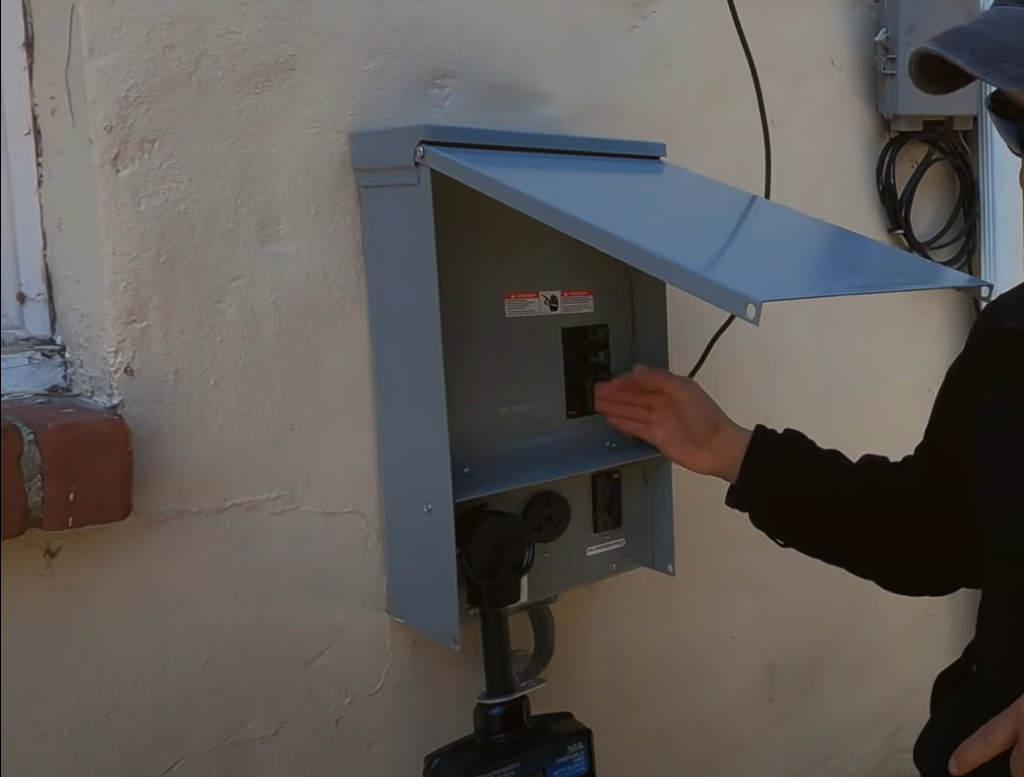
No matter what your budget is, there’s a surge protector out there that’s right for you.
RV Surge Protector Pros and Cons
RV surge protectors have a lot to offer in terms of safety and security for your RV. However, there are also some potential drawbacks that you should be aware of before making a purchase. Here is a quick overview of the pros and cons of using an RV surge protector:
Pros:
– Can help prevent damage to your RV from electrical surges
– Knowing that your RV is protected from power surges may provide a sense of security
– Some models are equipped with features such as integrated automatic circuit breakers or alarms that can alert you to potential problems
Cons:
– They can be expensive, so make sure you compare prices before making a purchase
– Some models require professional installation, which can add to the overall cost
– They may not provide protection from every type of power surge, so check the specs carefully before purchasing
As you can see, there are both pros and cons to using an RV surge protector. Ultimately, the decision of whether or not to use one is up to you.
RV Surge Protector Types
Now that you know a little bit about the pros and cons of RV surge protectors, let’s take a look at the available different types. There are three main types of RV surge protectors:
- Stand-alone units
- Portable units
- Built-in units
Stand-alone units are the most common type of RV surge protector. They are designed to be installed permanently on your RV, and they typically come with their own mounting hardware.
Portable units are another option if you don’t want to install a permanent unit on your RV. These devices can be plugged into any standard outlet, and they protect your RV against electrical surges. Many portable units also include features like built-in circuit breakers or alarms.
Built-in units are the third type of RV surge protector. These devices are installed directly into your RV’s electrical system, and they protect against electrical surges for your entire RV. Built-in units typically offer the highest level of protection, but they can be more expensive than other options.
No matter which type of RV surge protector you choose, make sure to do your research and select a product that meets your specific needs. Now that you know a little bit more about RV surge protectors, let’s take a look at some specific products on the market today.
Comparison of Indicators for Choosing an RV Surge Protector
When selecting an RV surge protector, it is important to consider various indicators to ensure the safety and functionality of your recreational vehicle. The table below provides a comparison of key indicators to help you make an informed decision.
| Indicator | Description |
|---|---|
| Surge Protection Rating (Joules) | The amount of energy the surge protector can absorb before it fails. Higher joule ratings provide better protection. |
| Clamping Voltage (V) | The maximum voltage that the surge protector allows to pass through to your RV. Lower clamping voltages offer better protection. |
| Response Time (ns) | The time it takes for the surge protector to respond and divert excess voltage away from your RV. Lower response times are more desirable. |
| Number of Outlets | The total number of outlets available on the surge protector. Ensure it meets your RV’s power requirements. |
| Indicator Lights | LED lights that indicate the status of the surge protector, such as power, surge protection, and wiring faults. |
| Weather Resistance | Whether the surge protector is designed to withstand outdoor conditions, including rain, dust, and UV exposure. |
| Cord Length (ft) | The length of the power cord provided with the surge protector. Ensure it is sufficient for your RV setup. |
| Installation Type | The method of installation, such as inline installation or plug-and-play design. Choose the type that suits your needs. |
This table compares important indicators to consider when selecting an RV surge protector. Evaluating these indicators will help you choose a surge protector that provides optimal protection for your RV and meets your specific requirements.
FAQ
Is a surge protector really necessary for an RV?
A surge protector is not a necessity for an RV but it is a very good idea to have one. They are low cost and can help save you a lot of cash over the long term. A surge protector will protect your electronics from power surges. Power surges can happen when lightning strikes, when the power goes out and comes back on, or even when your RV is plugged into an electrical outlet that has a high voltage.
Having a surge protector will give you peace of mind knowing that your electronics are safe from power surges. If you are ever in an area where there is a risk of power surges, it is best to be prepared and have a surge protector installed.
When operating a generator, do I need a surge protector?
Yes, when operating a generator you should always use a surge protector. A surge protector will protect your RV from power surges that can occur when the generator is turned on and off.
Operating a generator without a surge protector can damage your RV’s electrical system and appliances. It is best to be safe and use a surge protector whenever you are using a generator.
Surge protectors are not just for RVs, they are also for homes, businesses, and cars. If you have any electronics that you want to protect from power surges, it is best to use a surge protector.
What is the distinction between a surge protector and an EMS?
An EMS, or Energy Management System, is a device that is designed to protect your RV from power surges. An EMS will automatically shut off power to your RV if it senses a surge. This can be helpful if you are not at your RV when a power surge occurs.
A surge protector does not automatically shut off power to your RV, but it does protect your electronics from damage by absorbing the excess energy from the surge. Surge protectors are less expensive than EMS devices and they protect all of your electronics, not just those that are plugged into the unit.
EMS devices are more expensive than surge protectors but they offer more protection for your RV. If you are concerned about power surges, an EMS is the best option for you.
Do I need a 30- or 50-amp surge protector for my RV?
The size of the surge protector you need depends on the size of your RV. If you have a 30-amp RV, you will need a 30-amp surge protector. If you have a 50-amp RV, you will need a 50-amp surge protector.
You can buy surge protectors that have multiple outlets so that you can protect all of your electronics with one unit. This is a good option if you are not sure which size surge protector you need.
It is best to err on the side of caution and get a surge protector that is too big for your RV rather than one that is too small. A bigger surge protector will not damage your RV and it will offer more protection for your electronics.
Is it possible to overload a 30 amp RV using a 50 amp surge protector?
Yes, it is possible to overload a 30 amp RV using a 50 amp surge protector. However, it is not recommended and could potentially damage your RV. To avoid overloading your RV, make sure to check the maximum amperage rating of your surge protector and compare it to the amperage rating of your RV. If you have any questions, please consult an electrician or other qualified professional.
How many Joules do I require in a surge protector?
This is a difficult question to answer because it depends on several factors, such as the type of equipment you are using and the voltage of your power source. A good rule of thumb is to choose a surge protector with a Joule rating that is at least double the wattage of your devices. For example, if you have devices that use 100 watts of power, you should choose a surge protector with a Joule rating of 200 or more.
If you are still unsure, please consult an electrician or other qualified professional.
Is the RV surge protection suitable for use in water?
The best RV surge protector will have a waterproof casing. This will ensure that it is protected against the elements and can be used in all weather conditions. It is also important to choose a surge protector with a long cord so that you can reach any outlet, even if it is in an inconvenient location.
Finally, make sure to read the reviews of the product before purchasing it. This will give you an idea of its quality and how well it works. There are many different brands of RV surge protectors on the market, so take your time to find one that suits your needs.
Do RV surge protectors ever wear out?
The answer to this question is a bit complicated. On one hand, the metal oxide varistors (MOVs) inside RV surge protectors can degrade over time and eventually stop working. This is why most manufacturers only offer a limited warranty of around three to five years on their products.
On the other hand, if you take good care of your RV surge protector and don’t expose it to excessive heat or moisture, it could last for many years. We have seen some customers who have had their surge protectors for over ten years with no problems whatsoever.
So, while RV surge protectors can technically wear out, they usually last a long time as long as you take good care of them.
What are the red flags that an RV surge protector is faulty?
There are a few red flags that you can look out for to determine if your RV surge protector is faulty.
One of the most obvious signs is if the indicator light is not working. This light should turn on when the power is connected and turn off when the power is disconnected. If this light is not working, then there could be an issue with the surge protector.
Another sign that your RV surge protector might be faulty is if it trips frequently. A properly functioning RV surge protector should only trip occasionally, even in areas with high electrical activity. If your surge protector trips more than once every few months, then it may be time to replace it.
Finally, if your RV surge protector starts making noise, this could also be a sign that it is faulty. If you notice any of these red flags, it is best to replace your RV surge protector as soon as possible.
Why does my RV surge protector keep shutting off?
There are a few possible reasons why your RV surge protector might keep shutting off.
One possibility is that the circuit breaker is tripping. This usually happens if there is a sudden power surge or if the power load is too high. If this is the case, you can try resetting the circuit breaker.
Another possibility is that there is something wrong with the wiring. This could be a loose connection or a break in the wire. If you suspect that this is the issue, it is best to call an electrician to take a look at it.
Finally, it is also possible that the surge protector itself is faulty. If you have tried all of the other troubleshooting tips and nothing seems to be working, then it is probably time to replace the surge protector.
What is the average lifespan of an RV surge protector?
The average lifespan of an RV surge protector is around three to five years. However, if you take good care of your surge protector, it could last for much longer.
One way to extend the lifespan of your RV surge protector is to avoid exposing it to excessive heat or moisture. These conditions can cause the metal oxide varistors (MOVs) inside the surge protector to degrade over time.
Another way to prolong the life of your RV surge protector is to regularly check the connections and make sure they are tight. This will help prevent any loose wires from causing a problem.
Finally, be sure to keep an eye on the indicator light. If this light ever stops working, it is a sign that there could be an issue with the surge protector.
By following these tips, you can help ensure that your RV surge protector will last for many years.
What is the best way to test an RV surge protector?
There are a few different ways that you can test an RV surge protector.
One way is to use a multimeter to measure the voltage across the terminals. This will tell you if the surge protector is providing the correct amount of power.
Another way to test an RV surge protector is to use a circuit tester. This will help you determine if there are any breaks in the wiring.
Finally, you can also try plugging in a small appliance and see if it turns on. This will help you determine if the surge protector is working correctly.
By following these tips, you can easily test your RV surge protector and make sure it is working properly.
Can I use an RV surge protector with a 50-amp RV?
Yes, you can use an RV surge protector with a 50-amp RV. There are surge protectors specifically designed for 50-amp RVs, and they provide protection against power surges and voltage irregularities to safeguard your RV’s electrical system.
Are there portable RV surge protectors available?
Yes, there are portable RV surge protectors available. These surge protectors are designed to be easily transported and plugged into different campground pedestals. They provide the same level of protection as permanent surge protectors but offer the flexibility to be used with various power sources.
What are the key features to consider when choosing an RV surge protector?
When choosing an RV surge protector, some key features to consider include the joule rating, amp rating, voltage protection levels, built-in diagnostics, weather resistance, and the presence of additional features such as integrated circuit breakers or remote monitoring capabilities. These factors will help ensure the surge protector meets your specific needs.
Do RV surge protectors protect against low voltage?
Yes, RV surge protectors can protect against low voltage. Some surge protectors incorporate low voltage protection, also known as under-voltage protection, to prevent damage to your RV’s electrical components when the voltage drops below a safe level. This feature is particularly important when camping in areas with unstable or fluctuating power supply.
Can an RV surge protector protect against reverse polarity?
Yes, some RV surge protectors can protect against reverse polarity. Reverse polarity occurs when the hot and neutral wires in an electrical circuit are improperly connected, which can cause electrical appliances to malfunction or even pose a safety hazard. Surge protectors with built-in reverse polarity detection can alert you to this issue and prevent potential damage.
Are there surge protectors available for 30-amp RVs?
Yes, there are surge protectors specifically designed for 30-amp RVs. These surge protectors provide protection against power surges and voltage irregularities, ensuring the safety of your RV’s electrical system. It’s important to choose a surge protector that matches the amp rating of your RV to ensure compatibility and optimal protection.
Can an RV surge protector protect against high or low frequency issues?
Yes, certain RV surge protectors can protect against high or low frequency issues. Power supply problems, such as high-frequency noise or low-frequency surges, can affect the performance and lifespan of your RV’s electrical devices. Surge protectors equipped with advanced filtering technology can mitigate these frequency-related issues and provide cleaner and safer power to your RV.
Do RV surge protectors offer warranty coverage?
Yes, many RV surge protectors come with warranty coverage. The warranty period can vary depending on the manufacturer and model of the surge protector. It’s advisable to check the warranty details before making a purchase to understand the extent and duration of the protection provided by the manufacturer.
Can I use an RV surge protector in extreme weather conditions?
RV surge protectors are designed to withstand various weather conditions, including rain, heat, and cold. However, it’s essential to choose a surge protector that is specifically rated for outdoor use and has proper weather-resistant features. This ensures the surge protector remains reliable and provides protection even in extreme weather conditions.
Can I leave the RV surge protector plugged in all the time?
Yes, it is generally safe to leave the RV surge protector plugged in all the time. Surge protectors are designed to provide continuous protection against power surges and voltage fluctuations, so leaving them connected ensures ongoing protection for your RV’s electrical system. However, it’s a good practice to periodically inspect the surge protector for any signs of wear or damage.
Useful Video: Top 5 Best RV Surge Protector Review
Conclusion
RV surge protectors are an important investment for anyone who owns an RV. They can help protect your valuable electronics from damage caused by power surges. When choosing a surge protector, it is important to consider the amount of protection you need, the price, and the features that are important to you. We hope our buying guide and product reviews have helped find the best RV surge protector for your needs.
Happy travels!
References:
- https://blog.campingworld.com/rv-basics/what-you-need-to-know-about-rvs-and-surge-protectors/
- https://www.cnet.com/tech/home-entertainment/not-all-surge-protectors-are-created-equal/
- https://www.motortrend.com/how-to/1107rv-protecting-rv-electrical-systems-surge-spike/
- https://www.sciencedirect.com/topics/engineering/energy-management-system
- https://www.rvforum.net/threads/surge-protector-hard-wired-vs-portable.131980/
- https://www.gorving.com/tips-inspiration/how-tos/rv-living-30-amps
- https://blog.tripplite.com/what-are-surge-protector-joules-and-how-many-do-i-need
- https://electronics.howstuffworks.com/gadgets/home/surge-protector7.htm
- https://electronics.howstuffworks.com/gadgets/home/surge-protector7.htm
- https://www.gorving.com/tips-inspiration/how-tos/rv-living-30-amps
- https://www.ul.com/insights/guide-power-strips-and-surge-protectors

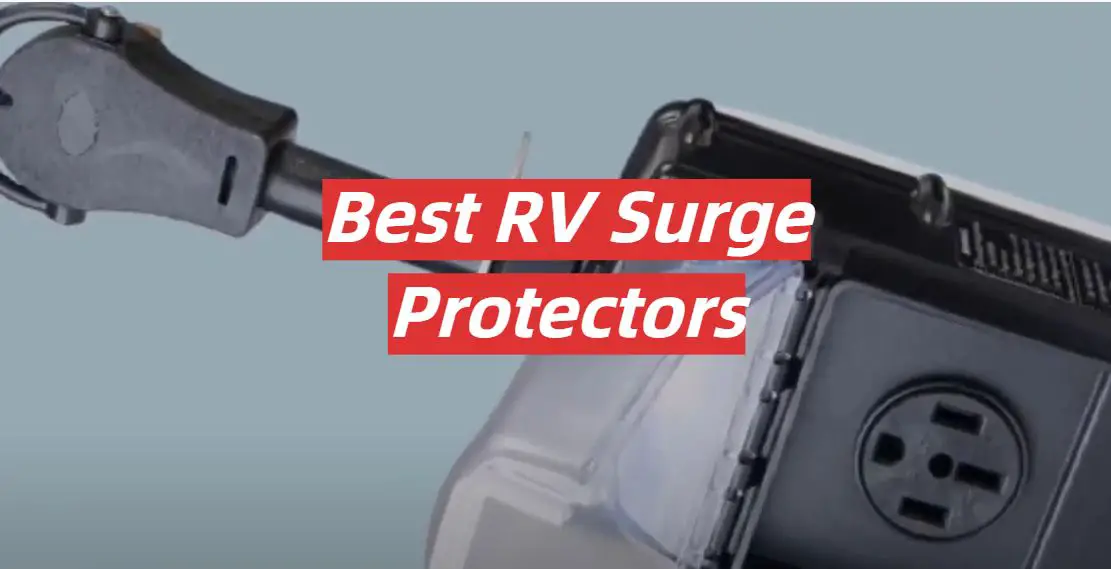
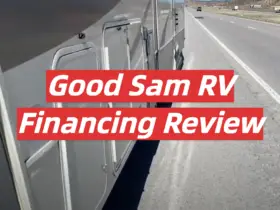
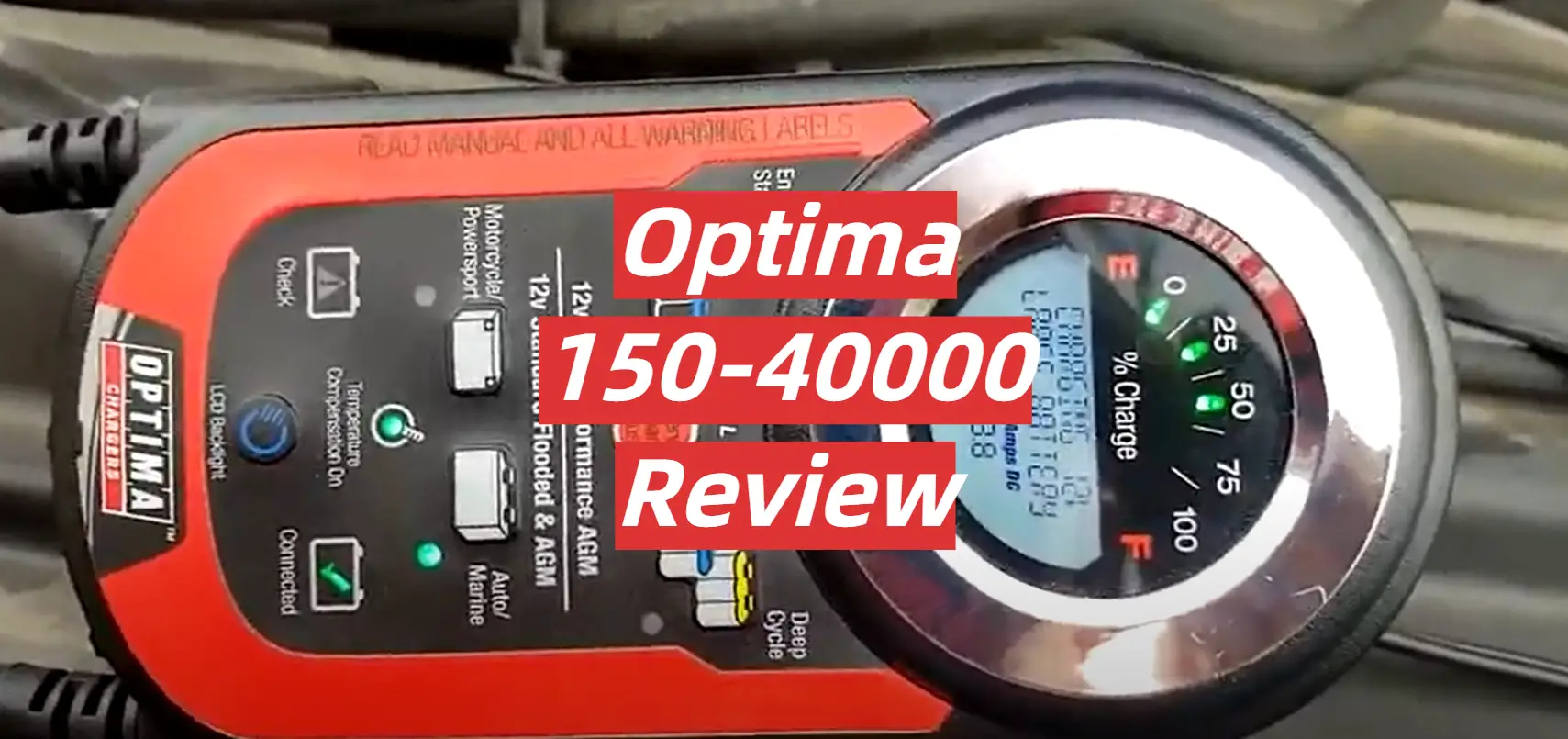
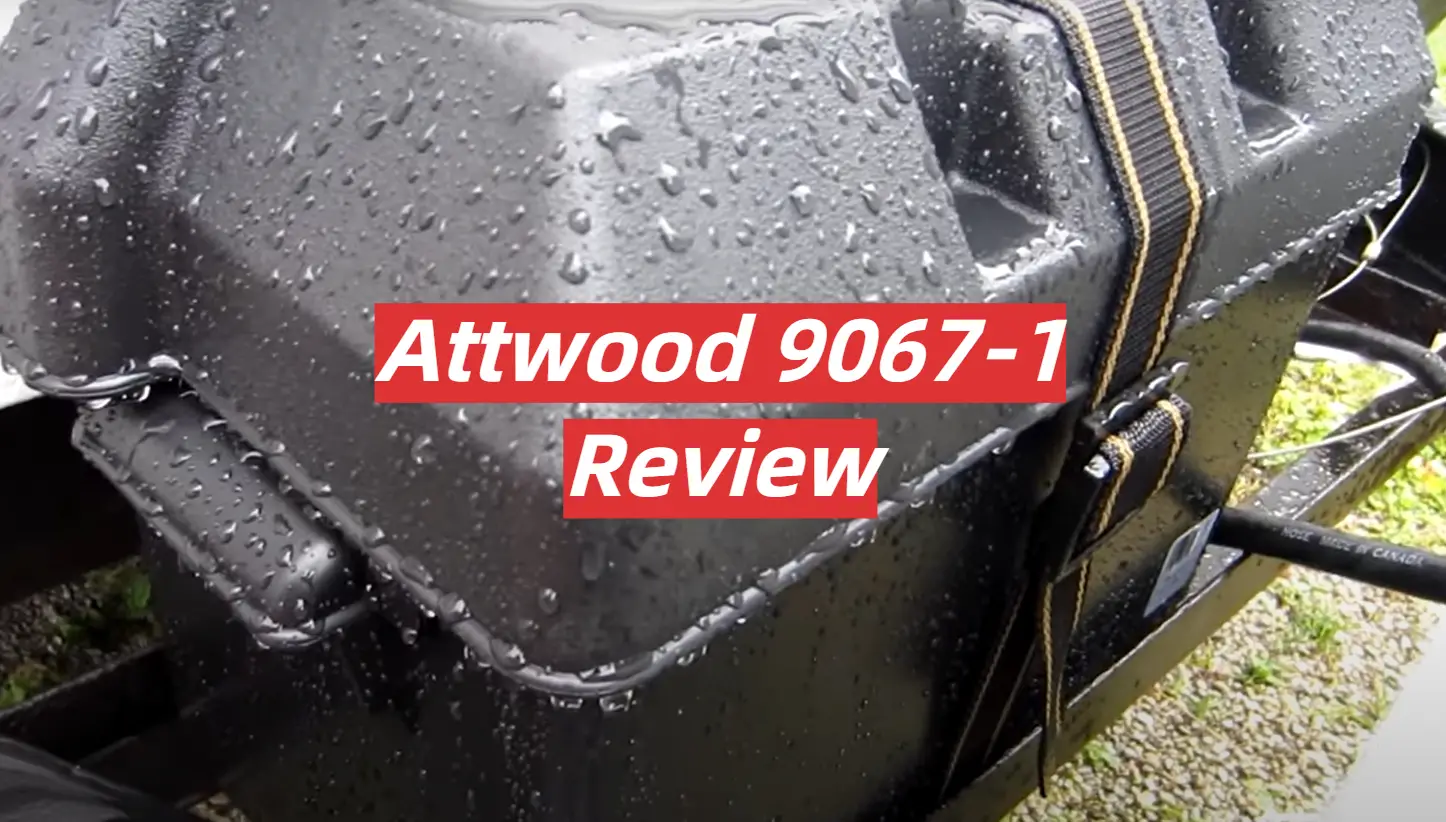
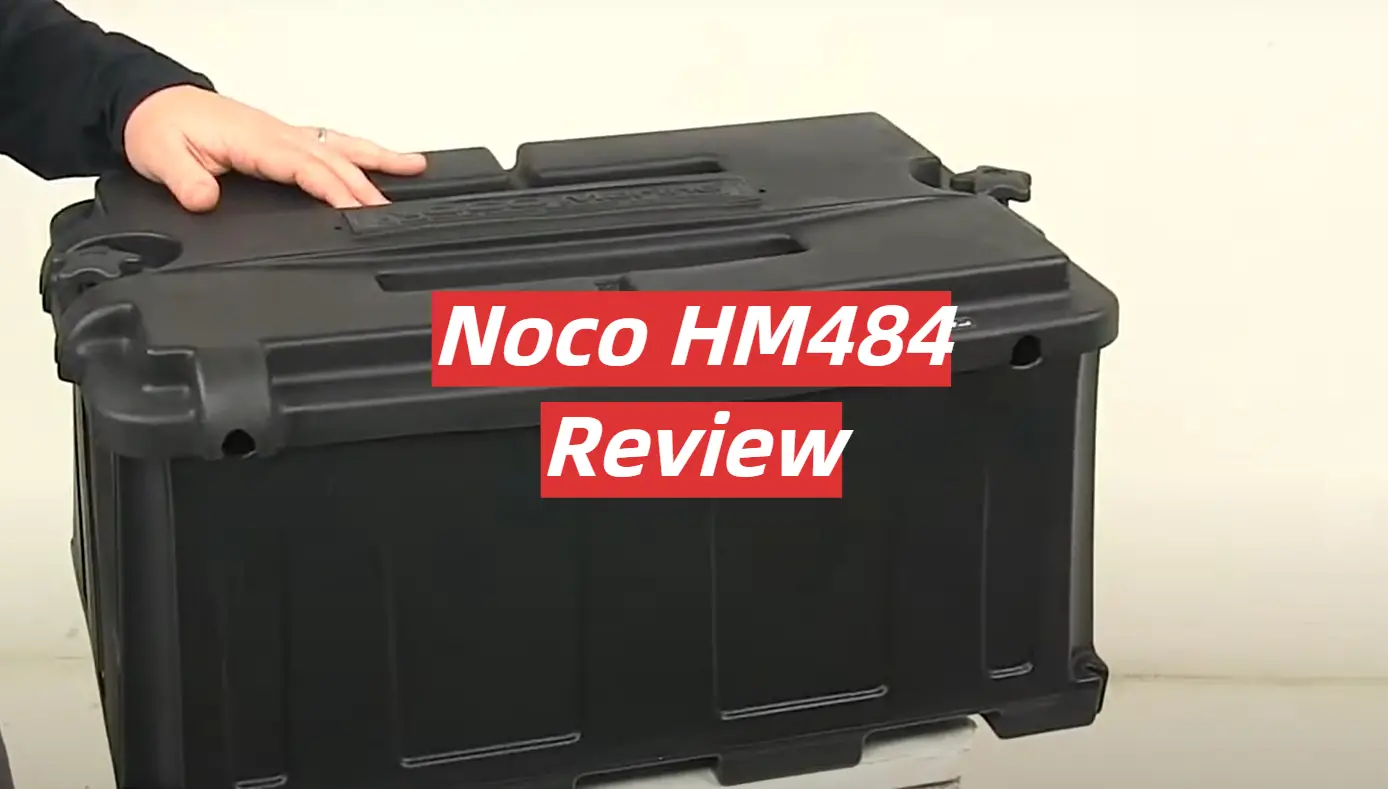
Leave a Reply